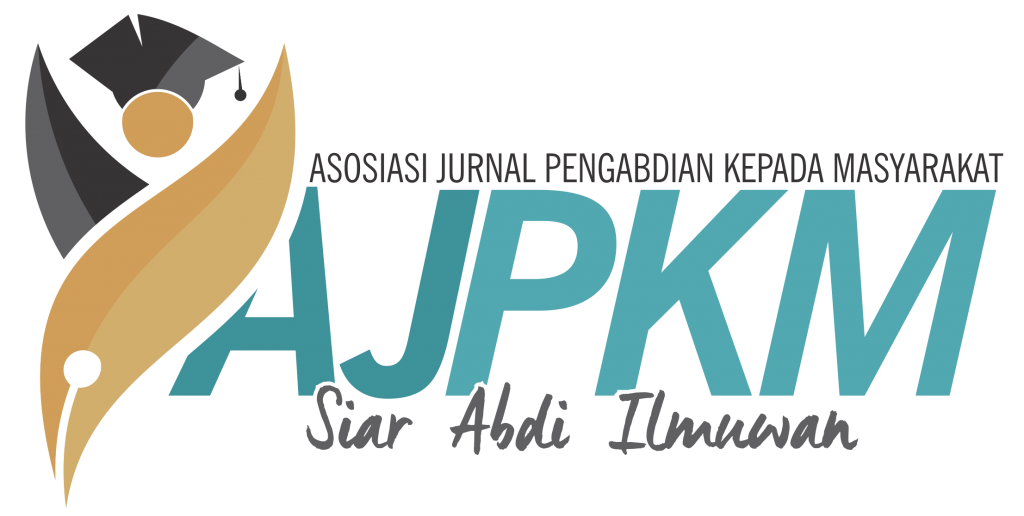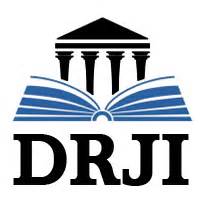PELATIHAN LITERASI DIGITAL DI MEDIA SOSIAL BAGI GENERASI MUDA UNTUK MEMBANGUN BUDAYA KESANTUNAN
Abstrak
Permasalahan yang dihadapi oleh generasi milenial dalam menjalani kehidupan di era informasi dan teknologi adalah minimnya pengetahuan seputar kemampuan berbahasa, khususnya kesantunan berbahasa. Problematika ini menjadi pelik ketika mereka terjun hidup pada kehidupan sosial media yang penuh dengan kebebasan. Dari permasalahan ini kemudian muncul permasalahan-permasalahan turunan, seperti banyaknya hujatan, makian, cacian, dan praktik-praktik kekerasan bahasa lainnya. Oleh sebab itu, penyuluhan dan pembinaan tentang kesantunan berbahasa kepada mahasiswa FIB Unpad mendesak untuk segera dilakukan yang pada gilirannya nanti kemampuan kesantuan berbahasa ini menjadi kapital linguistik dalam menghadapi kehidupan baru era informasi dan teknologi. Penyuluhan dan pembinaan ini menggunakan metode ceramah, pretes dan postes, brainstorming, dan simulasi. Hasil pengabdian ini adalah munculnya kesadaran dari mahasiswa dalam peningkatan kemampuan tentang kesantunan berbahasa yang dapat dijadikan sebagai kompetensi linguistik dalam menghadapi era teknologi dan informasi.
The problem faced by the millennial generation in living life in the information and technology era is the lack of knowledge about language skills, especially language politeness. This problem becomes complicated when they live in a social media life that is full of freedom. From this problem, derivative problems emerged, such as the many blasphemy, curses, insults, and other violent language practices. Therefore, counseling and guidance on language politeness to FIB Unpad students is urgently needed which in turn will become linguistic capital in facing the new life of the information and technology era. This counseling and coaching uses lecture, pretest and posttest, brainstorming, and simulation methods. The result of this service is the emergence of awareness from students in increasing skills about language politeness which can be used as linguistic competencies in facing the era of technology and information.
Kata Kunci
Teks Lengkap:
PDFReferensi
Allan, K. (1998). Meaning and speech acts. Monash University Press.
Bamman, D., Eisenstein, J., & Schnoebelen, T. (2014). Gender identity and lexical variation in social media. Journal of Sociolinguistics, 18(2), 135–160. https://doi.org/10.1111/JOSL.12080
Barron, A. (2006). Understanding spam: A macro-textual analysis. Journal of Pragmatics, 38(6), 880–904. https://doi.org/10.1016/j.pragma.2005.04.009
Barton, M. D. (2005). The future of rational-critical debate in online public spheres. Computers and Composition, 22(2), 177–190.
https://doi.org/10.1016/J.COMPCOM.2005.02.002
Blommaert, J., & Omoniyi, T. (2006). Email fraud: Language, technology, and the indexicals of globalisation. Social Semiotics, 16(4), 573–605. https://doi.org/10.1080/10350330601019942
Canagarajah, S., & Dovchin, S. (2019). The Everyday Politics of Translingualism as a Resistant Practice. International Journal of Multilingualism, 16(2), 127–144. https://doi.org/10.1080/14790718.2019.1575833
Crystal, D. (2011). Internet Linguistics: A Student Guide. Routledge.
Curran, T., & Singh, R. (2011). E-democracy as the Future Face of Democracy: A Case Study of the 2011 Irish Elections. European View, 10(1), 25–31. https://doi.org/10.1007/s12290-011-0154-6
Dahlgren, P. (2006). The Internet, Public Spheres, and Political Communication: Dispersion and Deliberation. Http://Dx.Doi.Org/10.1080/10584600590933160, 22(2), 147–162. https://doi.org/10.1080/10584600590933160
Dijk, T. A. van. (1993). Principles of critical discourse analysis. Discourse and Society, 4(2), 249–283.
Dresner, E., & Herring, S. C. (2010). Functions of the Nonverbal in CMC: Emoticons and Illocutionary Force. Communication Theory, 20(3), 249–268. https://doi.org/10.1111/J.1468-2885.2010.01362.X
Giroux, H. A., & McLaren, P. (2014). Rethinking the Public Sphere: a Contribution to the Critique of Actually Existing Democracy1. 74–98. https://doi.org/10.4324/9781315021539-5
Harris, U. S. (2017). Virtual Partnerships: Engaging Students in E-service Learning Using Computer-mediated Communication. Asia Pacific Media Educator, 27(1), 103–117. https://doi.org/10.1177/1326365X17701792
Herring, S. C. (2019). The Coevolution of Computer-Mediated Communication and Computer-Mediated Discourse Analysis. In P. Bou-Franch & P. Garcés-Conejos
Blitvich (Eds.), Analyzing Digital Discourse (pp. 25–67). Springer International Publishing. https://doi.org/10.1007/978-3-319-92663-6_2
Hoed, B. H. (2015). Semiotik & Dinamika Sosial Budaya. Komunitas Bambu.
Ingber, W., Bach, K., & Harnish, R. M. (1982). Linguistic Communication and Speech Acts. The Philosophical Review, 91(1), 134. https://doi.org/10.2307/2184680
Kelly-Holmes, H. (2019). Multilingualism and Technology: A Review of Developments in Digital Communication from Monolingualism to Idiolingualism. Annual Review of Applied Linguistics, 39, 24–39. https://doi.org/DOI: 10.1017/S0267190519000102
Lazzini, A., Lazzini, S., Balluchi,
F., & Mazza, M. (2022). Emotions, moods and hyperreality: social media and the stock market during the first phase of COVID-19 pandemic. Accounting, Auditing and Accountability Journal, 35(1), 199–215. https://doi.org/10.1108/AAAJ-08-2020-4786/FULL/PDF
Ma, Q. (2017). A multi-Case Study of University Students’ Language-Learning Experience Mediated by Mobile Technologies: A Socio-Cultural Perspective. Computer Assisted Language Learning, 30(3–4), 183–203. https://doi.org/10.1080/09588221.2017.1301957
Mandaville, M. (2009). Citizen-Soldier Handbook: 101 Ways Every American Can Fight Terrorism. Dog Ear Publishing.
McNeil, L. (2017). Languaging About Intercultural Communication: the Occurrence and Conceptual Focus of Intracultural Peer Collaborative Dialogues. Language Awareness, 26(3), 151–169. https://doi.org/10.1080/09658416.2017.1377723
Mdzanga, N., & Moeng, M. (2020). Critical Perspectives on Language as a Social-Justice Issue in Post-Colonial Higher-Education Institutions. In C. McNaught & S. Gravett (Eds.), Embedding Social Justice in Teacher Education and Development in Africa (p. 14). Routledge.
Mufwene, S. S. (2022). The Linguist, Language, and Economic Development: A Commentary on Languages, Linguistics and Development Practices. In D. Hill & F. K. Ameka (Eds.), Languages, Linguistics and Development Practices (pp. 267–289). Springer International Publishing. https://doi.org/10.1007/978-3-030-93522-1_11
Nasrullah, R., Suganda, D., Wagiati, & Riyanto, S. (2019). Recovery Patterns and A Linguistic Therapy Model of Sundanese-Indonesian Bilingual Aphasia: A Neurolinguistic Study. Indonesian Journal of Applied Linguistics, 9(2), 452–462. https://doi.org/10.17509/ijal.v9i2.20243
Nasrullah, R., Suganda, D., Wagiati, & Riyanto, S. (2021). Verbal-Lexical Expression ofIndonesian-Speaking Persons with Broca’s Aphasia. Ilkogretim Online-Elementary Education Online, 20(5), 692–706. https://doi.org/10.17051/ilkonline.2021.05.74
Obianika, E. C. (2020). Language as Tool of Exclusion and Dominance of Southeast Nigeria’s Indigenous Peoples: A Historical Perspective. In S. D. Brunn & R.
Kehrein (Eds.), Handbook of the Changing World Language Map (pp. 1675–1693). Springer International Publishing. https://doi.org/10.1007/978-3-030-02438-3_18
Toma, C. L., & Hancock, J. T. (2010). Looks and lies: The role of physical attractiveness in online dating self-presentation and deception. Communication Research, 37(3), 335–351. https://doi.org/10.1177/0093650209356437
Tsaliki, L. (2003). Globalisation and hybridity: the construction of Greekness on the Internet. The Media of Diaspora, 174–188. https://doi.org/10.4324/9780203380642-21
Wang, H.-Y., Liu, G.-Z., & Hwang, G.-J. (2017). Integrating Socio-Cultural Contexts and Location-Based Systems for Ubiquitous Language Learning in Museums: A state of the Art Review of 2009–2014. British Journal of Educational Technology, 48(2), 653–671. https://doi.org/https://doi.org/10.1111/bjet.12424
Zelenkauskaite, A., & Herring, S. C. (2008). Television-mediated conversation: Coherence in Italian iTV SMS chat. Proceedings of the Annual Hawaii International Conference on System Sciences. https://doi.org/10.1109/HICSS.2008.425
Zeller, J. P. (2022). Attitudes on Languages, Identities and Politics at the Ukrainian Black Sea Coast in 2020/21. Russian Linguistics, 1–21. https://doi.org/10.1007/s11185-022-09264-7
Zhu, M., Herring, S. C., & Bonk, C. J. (2019). Exploring Presence in Online Learning Through Three Forms of Computer-Mediated Discourse Analysis. Distance Education, 40(2), 205–225. https://doi.org/10.1080/01587919.2019.1600365
Zuanetti, P. A., Avezum, M. D. M. de M., Ferretti, M. I., Pontes-Fernandes, A. C., Nunes, M. E. N., Liporaci, N. M., Fukuda, M. T. H., & Hamad, A. P. A. (2021). Development of Language and Arithmetic Skills: Risk and Protective Factors. Comparative Cross-Sectional Study. Sao Paulo Medical Journal, 139(3), 210–217. https://doi.org/10.1590/1516-3180.2020.0280.R1.10122020
DOI: https://doi.org/10.24198/kumawula.v6i2.42852
Refbacks
- Saat ini tidak ada refbacks.
Kumawula: Jurnal Pengabdian kepada Masyarakat Terindeks Di:











21.png)













